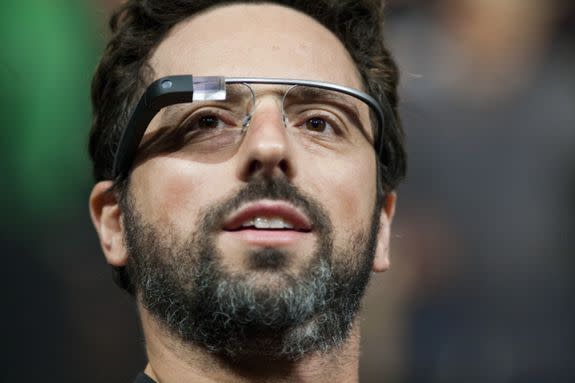Sergey Brin shouts out Ethereum and warns of AI in annual founders' letter

When Sergey Brin talks, people listen. And right now Brin is talking about AI and cryptocurrency.
As the president of Alphabet, Google's parent company, Brin is uniquely positioned to not only see what technological developments are coming down the pike but to influence them as well. That makes the company's annual founders' letter an important indicator for the tech world. According to Brin, who wrote this year's, the signs are mixed.
SEE ALSO: Google's AI has some seriously messed up opinions about homosexuality
He opens the letter by quoting from Charles Dickens's A Tale of Two Cities, and proceeds from there to dive into the huge growth in computing power that he's witnessed during his tenure at Google and Alphabet.
"There are several factors at play in this boom of computing," he writes. "First, of course, is the steady hum of Moore’s Law, although some of the traditional measures such as transistor counts, density, and clock frequencies have slowed. The second factor is greater demand, stemming from advanced graphics in gaming and, surprisingly, from the GPU-friendly proof-of-work algorithms found in some of today’s leading cryptocurrencies, such as Ethereum."
That's right, cryptocurrency, even if it turns out to not be good for anything else, has in Brin's mind at least pushed computing forward. So there's that.

Image: Kim Kulish/getty
The main focus of the letter, however, is artificial intelligence. Brin highlights the Google products and services that benefit from neural networks, and the list is quite extensive.
But it's not all roses. Brin brings us back down to earth by asking "how might [powerful tools] manipulate people" and whether or not they're safe.
And much like Elon Musk has done before him (albeit in a more subdued manner), Brin acknowledges that artificial intelligence could pose some not-quite-yet-understood risks.
"Most notably, safety spans a wide range of concerns from the fears of sci-fi style sentience to the more near-term questions such as validating the performance of self-driving cars."
So there you have it. According to one of the most influential people in the world of tech, the future is bright — thanks in small part to cryptocurrency — and it will continue to be bright as long as AI doesn't ruin it all for us.
Fingers crossed.
WATCH: Google created an AI-based, open source music synthesizer


 Yahoo Finance
Yahoo Finance 